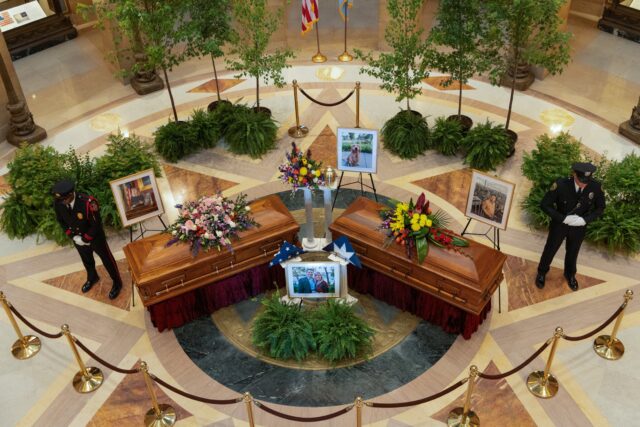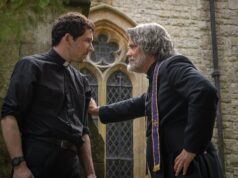
Thanks to the availability of instantaneous, global communication and our addiction to it, 21st century humans are permitted — perhaps condemned is a better word — to witness daily episodes of brutality and violence and, particularly over the past few months, horrendous killings.
We were spared viewing the June slayings of Democrat lawmaker Melissa Hortman and her husband and the nightmarish shooting of school children attending Mass at the Church of the Annunciation, in Minneapolis.
But the assassination of conservative activist Charlie Kirk happened before countless smart phones set to video. The senseless murder of Ukrainian refugee Iryna Zarutska was caught on security cameras and released to the public with appropriate edits but remained gruesome.
Precisely as I filed a piece on Kirk and Zarutska, news was breaking about yet another school shooting, this time in Evergreen, Colorado and I went to my prayer space, anguished that the pace of our violence had become so relentless.
And of course, nearly every day we see the carnage of seemingly unsolvable war in the Middle East and between Russia and Ukraine.
I write this on Yom Kippur, as details are still emerging about a terrorist attack on a synagogue in Manchester, England, killing two. On social media we saw a Jewish victim dying in his own blood as police took down the attacker. It’s unclear, yet whether the culprit was wearing explosives, but he had already driven his car into people and then stabbed several while attempting to enter the building on this Jewish High Holy Day.
And here in America, we are only days out from yet another dreadful church shooting, this time targeting the Church of Jesus Christ of Latter-day Saints, in Michigan. It included deliberate arson into the mix.
“Enough, Lord, enough!” The plea rises from my tongue and gut like frail incense; I have no answers for the images before me. There is no action I can take beyond prayer. “Let me see no more blood, no more weeping, no more shock blankets, no more dying children!”
A tempting response might be, “Stay off social media; problem solved!” But given the giant role such platforms play in most lives, that’s hardly pragmatic. In chat groups, friends wonder whether explicitly violent material should be banned from postings but there always comes a point where someone says, “I’d rather know what we’re facing out there, than not know,” and the conversation dies out.
That sentiment might be true, but I wonder if those of us who work in news media, where “if it bleeds it leads” is understood, might help balance all the dreadful shots of human misery by promoting a larger awareness of the human mercies that sometimes follow.
There was certainly ample coverage when Erika Kirk pronounced forgiveness for her husband’s assassin — an act that inspired others — but it was not sustained. Thoughtful editors might have sought further analysis of the action of forgiveness as an authentic bringer of hope and a maker of peace but I suspect that, especially for mainstream media outlets, taking a deeper look into the mystery of mercy would feel like initiating a too-challenging-to-control dance between religious and earthly sentiments, with the very real effect of the religious side seeming both wildly idealistic yet attractive — a secularist’s nightmare.
Still, we are seeing coverage of the incredible outreach by the Latter-day Saints to the family of the man who destroyed their worship space and killed their members. “They (the family) certainly didn’t choose this. They certainly didn’t want this to happen. And they’re victims, too,” explained Mormon David Bulter, who organized the GiveSendGo effort which has raised over $250,000. More than material support, the Mormons offered prayers and words of forgiveness and encouragement to people whose sufferings are often forgotten amid tragedy and outrage.
Getting less attention, but equally inspiring, is the story of Maoz Inon who embraced “radical forgiveness” after his parents were killed in the October 7, 2023 terror attack along Israel’s border. He has partnered with Palestinian Abu Sarah, whose brother died after being beaten in an Israeli jail. The two men work for peace by inviting personal dialogue. Their co-authored book, “The Future Is Peace,” which details an eight-day journey across Israel and the West Bank, offers both Palestinian and Israeli narratives and will be published in April 2026.
The forgiveness of Erika Kirk; the good-and-welfare outreach of the Mormons, the promotion of dialogue between Jews and Palestinians: more than actions of hope, these are evidence of mercy amid our current madness. Praise be to God that we may not only be witness to such mercy, but each become part of it.
Elizabeth Scalia is editor at large for OSV. Follow her on X @theanchoress.






